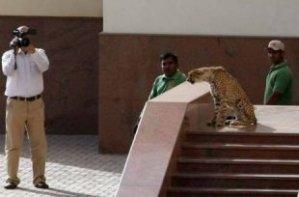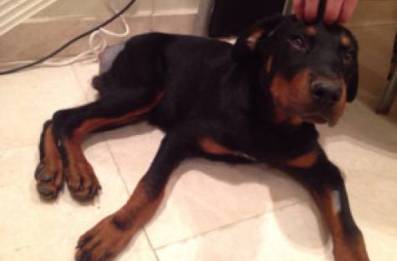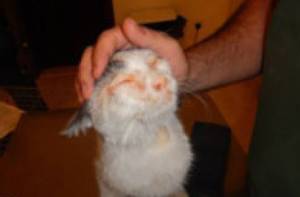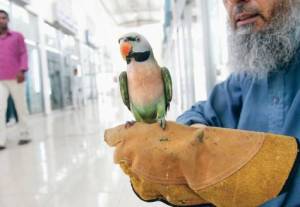Sharjah Ruler bans breeding of exotic animals, reptiles at home and farms
Gulf News – Tue, Nov 25, 2014

A cheetah was found in front of the mosque near Radisson SAS Hotel in Sharjah. The decision to ban keeping wild …
Exotic pet owners have one month to hand over their so-called pets to authorities under a newly announced ban on breeding and possession of wild animals smuggled into the emirate at homes and farms.
Those who fail to surrender their exotic pets will be slapped with a Dh100,000 fine in addition to confiscation of the species.
His Highness Dr Shaikh Sultan Bin Mohammad Al Qasimi, Supreme Council Member and Ruler of Sharjah, issued the decision on Sunday but public and private zoos, scientific and research centres and universities which obtained licences from the Environment and Natural Reserves Agency in Sharjah are exempted.
Hana Saif Al Suwaidi, Director-General of Sharjah Environment and Natural Reserves Authority, told Gulf News that the Environment authority is working on a draft law to explain and clarify the tasks of each department in carrying out the decision.
The decision gave offenders a one-month grace period to amend their position.
The decision was praised by those who said they are being placed in danger by these animals.
Others who own exotic pets are upset they have to surrender their animals, Hana said.
“Yesterday, we received many calls from people … they want to hand over their animals to us,” she said. “This week we will count the number of people who obtained these dangerous animals either in their houses or farms … we know those people … and we will speak to them before implementing the decision next month.”
Hana said that the UAE has signed an international memorandum banning the trade of animals and plants that are threatened with extinction.
“We received a number of complaints from residents about a lion’s roar which came from a house in a residential area and could be heard from a distance away. Children were scared to hear such a sound, especially during night time. How will it be inside the house? It’s very dangerous,” she said.
Every month, the environment authority in Sharjah confiscated around 25 wild animals and reptiles, she said.
This work exhausted the budget of the environment authority and the staff.
People buy these animals when they are small as they look nice but when they grow up they need to be returned to the wild and they need special care that normal people cannot offer.
People were even attacked by exotic pets in some cases and received injuries and permanent disabilities, she said.
Quarantine
Confiscated animals were kept in quarantine for 40 days and later the department contacted zoos in the UAE, GCC and Europe asking them if they wished to obtain these animals, she said.
The Sharjah Environment and Natural Reserves Authority will launch an awareness campaign through audio and visual media to make people aware about the new ban, Hana said.
Meanwhile, residents can report any wild animals to 8003722745 or Arabia’s Wildlife Centre at 06-5311999.
Exotic pet owners can call the same numbers for inquiries or to hand over their animals.
via Exotic pet owners given 30 days to free animals – Yahoo Maktoob News.










